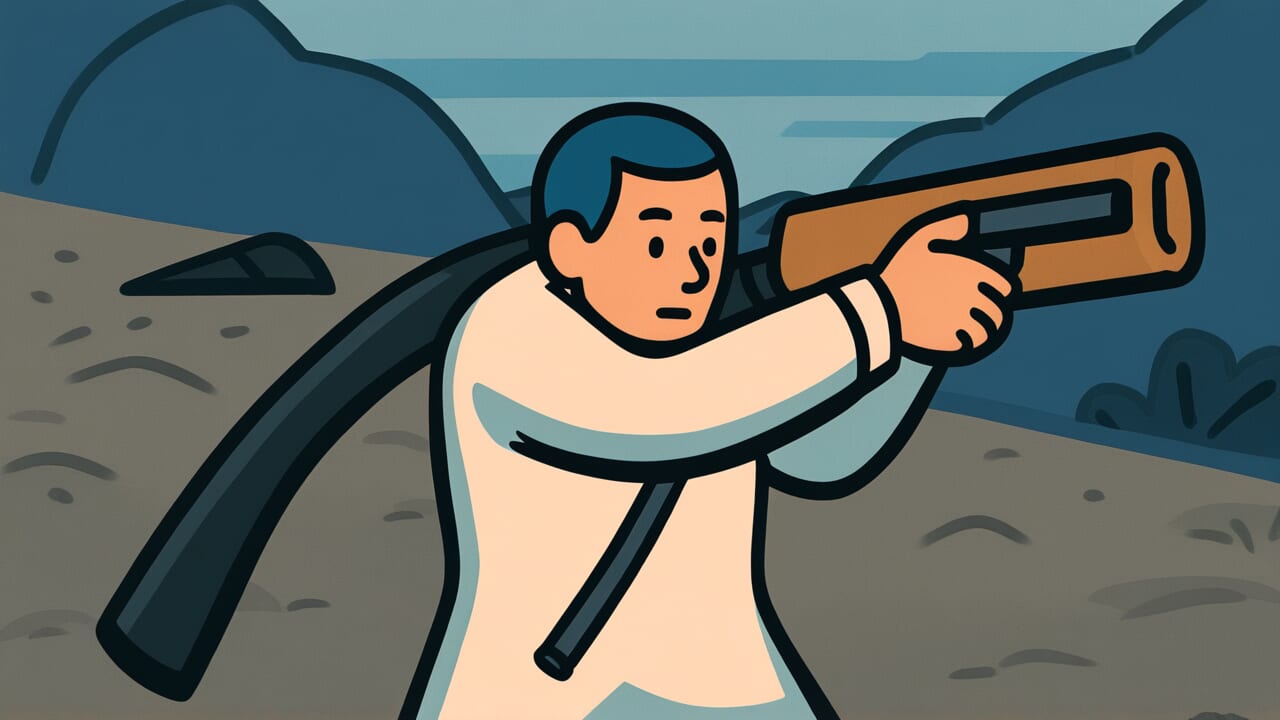How to Read “No blade can strike against kindness”
Nasake ni hamukau yaiba nashi
Meaning of “No blade can strike against kindness”
“No blade can strike against kindness” means that when someone receives compassion or mercy, they cannot rebel or oppose it.
No matter how strong your hostility or opposition might be, when someone shows you genuine warmth and consideration, you cannot raise a weapon against that kindness.
This proverb teaches us that the strongest force for moving people’s hearts is not military power or authority, but compassion and mercy.
Even when facing an opponent, if they show you kindness, your heart softens and your hostile feelings disappear. This expresses a fundamental aspect of human nature.
Even today, this truth remains relevant. A thoughtful response opens people’s hearts more effectively than harsh words or aggressive attitudes.
Origin and Etymology
No clear written records document the origin of this proverb. However, we can make interesting observations from how the words are structured.
“Nasake” refers to compassion and mercy toward others. “Hamukau” means to rebel or oppose, and notice it contains the character for “blade.”
“Yaiba nashi” means there is no blade or weapon. The character for “blade” appears twice in this expression.
The proverb uses “blade” as a symbol of force and conflict, then shows how it becomes powerless.
Traditional Japanese values placed virtue and compassion above military force. Even in bushido, the samurai code, compassion was valued alongside strength.
When someone shows you kindness, you lose your hostility in the face of that warmth. This captures an essential aspect of human psychology.
The structure itself is clever. It uses the symbol of force—the “blade”—twice, then shows how that blade becomes ineffective.
This skillful construction demonstrates through the words themselves that the power of kindness surpasses the power of force.
Usage Examples
- That subordinate was so resistant, but when the boss listened to his concerns with genuine care, it was no blade can strike against kindness—he became cooperative
- Her kindness is truly no blade can strike against kindness; no matter how stubborn you are, you eventually give in
Universal Wisdom
“No blade can strike against kindness” reveals a universal truth about the human heart.
We may appear to act on rational judgment and calculated interests. But in reality, we are beings greatly influenced by emotions.
No matter how strong your will, no matter how much you view someone as an enemy, your heart changes surprisingly easily when met with sincere kindness and consideration.
This is not weakness. It is a manifestation of the empathy that humans fundamentally possess.
When we encounter another person’s goodwill, we cannot suppress the desire to respond in kind.
This truth explains why love and compassion hold greater power than violence or coercion.
Force can make people obey temporarily, but it cannot change their hearts. Kindness, however, reaches deep into the heart and melts away hostility itself.
Our ancestors understood this essential human psychology. The most reliable way to resolve conflict and build peace is not to defeat your opponent, but to show them compassion.
This wisdom demonstrates a profound understanding of human nature that never fades, no matter how times change.
When AI Hears This
The famous Prisoner’s Dilemma game creates a paradox. Both parties lose when they betray each other, yet rational thinking suggests betrayal is the only option.
For example, attacking your opponent gains you 5 points. But if both attack, both lose 10 points.
Here, the action of “kindness” becomes a powerful signal that makes the calculation “cooperation is more profitable” work for your opponent.
Game theory proves that “tit-for-tat strategy” is most effective in repeated games. This strategy cooperates when the opponent cooperates, and retaliates when they betray.
Interestingly, players who show kindness first—who demonstrate a cooperative stance—score highest in the long term.
Computer simulations show that “generous strategies” gain about 30 percent more profit on average than aggressive strategies.
In other words, the phenomenon of “no blade can strike” results from the recipient calmly calculating costs and benefits.
Attacking creates a zero-sum game—a struggle over limited resources. But cooperation shifts the situation to a non-zero-sum game where both parties benefit.
Human moral intuition is actually strategic wisdom optimized over thousands of years. The action of “putting down the blade” is chosen not from emotion, but as a mathematically correct choice.
Lessons for Today
This proverb teaches us the most effective way to resolve conflicts and disputes.
Modern society is full of various conflicts—arguments on social media, workplace relationships, family tensions. In these moments, we tend to try defeating opponents with logic or pushing through with strong attitudes.
However, this proverb shows us a different path. If you truly want to change someone’s heart, start by showing them kindness.
An attitude that tries to understand their position, thoughtful words, sincere consideration—these may seem like the long way around. But they are actually the most reliable way to open someone’s heart.
When you find yourself in conflict with someone, remember this wisdom. Instead of choosing to win, choose to reach their heart.
Kindness is not weakness. It is the strongest force for moving people’s hearts.
It enriches not only the other person’s heart, but your own as well. Have the courage to use gentleness as your weapon.



Comments